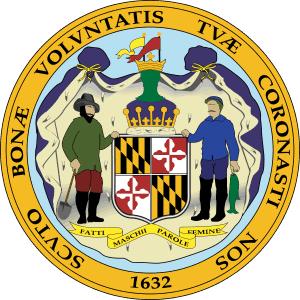 The Maryland General Assembly has passed legislation that will allow small businesses to raise debt capital from Maryland residents. The new law minimizes risk to investors by restricting each individual’s investment to $100 and allows small businesses to raise up to $100,000 in any given year. By allowing borrowers to pay individual investors interest, the new law encourages Maryland residents to see this as an option to benefit their communities and their own financial gain. The law will go into effect as of October 1, 2014.
The Maryland General Assembly has passed legislation that will allow small businesses to raise debt capital from Maryland residents. The new law minimizes risk to investors by restricting each individual’s investment to $100 and allows small businesses to raise up to $100,000 in any given year. By allowing borrowers to pay individual investors interest, the new law encourages Maryland residents to see this as an option to benefit their communities and their own financial gain. The law will go into effect as of October 1, 2014.
SB811 and HB1243 was pushed forward in recognition of the fact that startups and small businesses are the engines that drive local economies. With the excessive regulation endured by the banking industry a debt based crowdfunding exemption may ease the process, and open opportunities, for small businesses across Maryland to get loan capital to grow and thrive. The legislation hopes to build stronger, more connected and resilient communities in the state.
In brief:
- The law will allow small businesses, based in Maryland, to invite Maryland residents to lend them money and get repaid, with interest – something that was not possible before the bill.
- Businesses will be able to borrow up to $100,000 in any given 12 month period; lenders will be limited to a maximum of $100 per business per loan.
- The $100 limit will protect average investors from large losses and because it is low will encourage a broader group of people to participate.
- The bill will promote closer ties between businesses and their communities.
- Businesses will only be required to file notice with the Maryland Securities Commission, rather than going through the complex securities registration and reporting currently required.
Paul Spinrad who worked on the original crowdfunding exemption back in 2010 which in part got the ball rolling commented on the new legislation;
Kansas’s $5000.00 and Georgia’s $10,000 are heartbreaking amounts for many people to lose by following an enthusiastic crowd, so I think Maryland is prudent to enact the investment limits from our 2010 proposal. With low overhead and low caps, these experimental exemptions can be both usable and safe. We can always raise the caps later.
Some exemption advocates focus on letting everyone invest early in “the next Facebook,” but I like that the Maryland exemption is more My Beautiful Laundrette than The Social Network. Debt-only and modest caps make sense for small businesses serving their communities, rather than detached investors looking for a big exit.
 The bill is viewed as making Maryland a leader in the nationwide effort to open new paths to capital through crowdfunding mechanisms that will strengthen the state by building a strong local business base. Senator Jamie Raskin and Delegate Tom Hucker, both from Maryland District 20, were acknowledged for their support on this bill. The bill was signed into law on March 13, 2014 but there will be more information about the implementation of the bill after the State Securities Commission issues its guidelines, most likely this fall.
The bill is viewed as making Maryland a leader in the nationwide effort to open new paths to capital through crowdfunding mechanisms that will strengthen the state by building a strong local business base. Senator Jamie Raskin and Delegate Tom Hucker, both from Maryland District 20, were acknowledged for their support on this bill. The bill was signed into law on March 13, 2014 but there will be more information about the implementation of the bill after the State Securities Commission issues its guidelines, most likely this fall.

